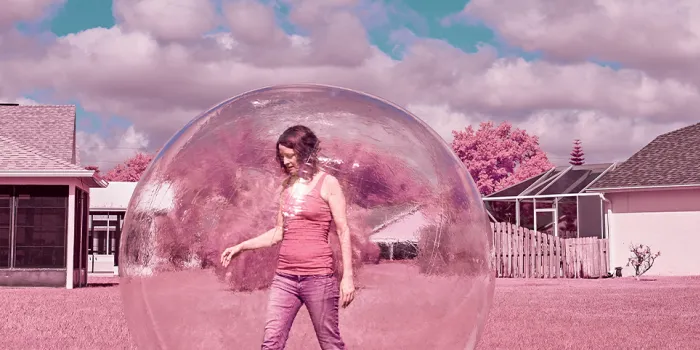COVID-19 has disrupted the lives of everyone, including young adults, who have had to navigate classes and commencements, weddings and births, and job losses and searches, while also managing bleeding disorders during the global pandemic. “Accepting that we’re dealing with uncertainty is key to coping during this challenging time,” says Mary Karapetian Alvord, PhD, a Maryland-based psychologist. “Although you can’t control all of your circumstances, you can control your routines, behavior, thoughts and attitudes.”
Here’s how three young adults are doing just that to stay on an even keel.
Staying Connected
Matt Delaney, 23, had just started settling into his job managing grants and public policy for a mental health nonprofit in Albany, New York, when the pandemic threw a wrench into his plans to move out of his parents’ home. Suddenly he found himself home all day. “After you’ve been independent for a few years, having your parents on you about your bleeding disorder can get annoying,” says Delaney, who has von Willebrand disease.
More challenging has been Delaney’s fear that a bleeding complication would land him in the hospital, which could expose him to the virus. But working with mental health professionals has introduced him to helpful tools, such as mindfulness. “I’ll think, ‘What’s in my control right now?’” he says. “For me, keeping a tight routine schedule is really important. That’s the way I can cope with the world that’s changing a mile a minute.”
He also takes a daily run and leans on his social network. Says Delaney, “I make sure I check in with a friend every day.”
Flexibility Is Key
Michelle Cecil’s job as a university housing officer in Ohio fizzled when COVID-19 hit, and her fiancé, Dylan Edwards, was forced to finish his last semester of graduate school remotely. On top of the chaos, Cecil was hospitalized for several days (unrelated to her bleeding disorder), and then Edwards’ grandmother died.
“It was a pretty rough three months,” says Cecil, 28, who has von Willebrand disease. “I’m a firm believer that everything happens for a reason, but it was really hard to stay positive.” The couple weren’t able to celebrate Edwards’ graduation, and his grandmother’s funeral has been put on hold.
Therapy has given Cecil new coping tools. “I’m now a believer in having a support plan before things happen, so that you don’t have to create one when you can’t think straight,” she says.
As the couple searched for jobs, they were also planning their wedding, slated for March 2021, which has introduced new stressors. Yet Cecil has stayed strong.
Her advice: “If you’re planning or living through significant life events or navigating a job search, be flexible with your expectations.” Cecil’s resilience paid off when she landed her dream job as outreach manager for the Central Ohio Diabetes Association.
Routines Matter
When Shelly Reed, 34, who has von Willebrand disease, was furloughed from her job as a corporate trainer in Murfreesboro, Tennessee, in early April, she says, “I had to keep in mind that it was not a reflection on me or my work ethic.”
Reed decided to stick to a normal routine. “I felt like if I slept in or just didn’t do much, that it would make me feel sad, depressed and unproductive,” she says. So she did puzzles and DIY projects and helped update friends’ résumés. “That’s not to say that I didn’t have days where I stayed in PJs and just watched movies,” she says. “Everybody has to have a mental health day once in a while!” Although her biggest concern was having access to infusion supplies, she never ran out during lockdown.
After Reed returned to her job (alternating working from home and in person), she also planned a virtual baby shower for her sister. “Even though it was remote, it was a wonderful way to connect with our friends,” she says.
In general, she has relied on regular contact with friends and family to get by. “It won’t necessarily make your situation better,” Reed says, “but it’s important to have people who will just listen.”

